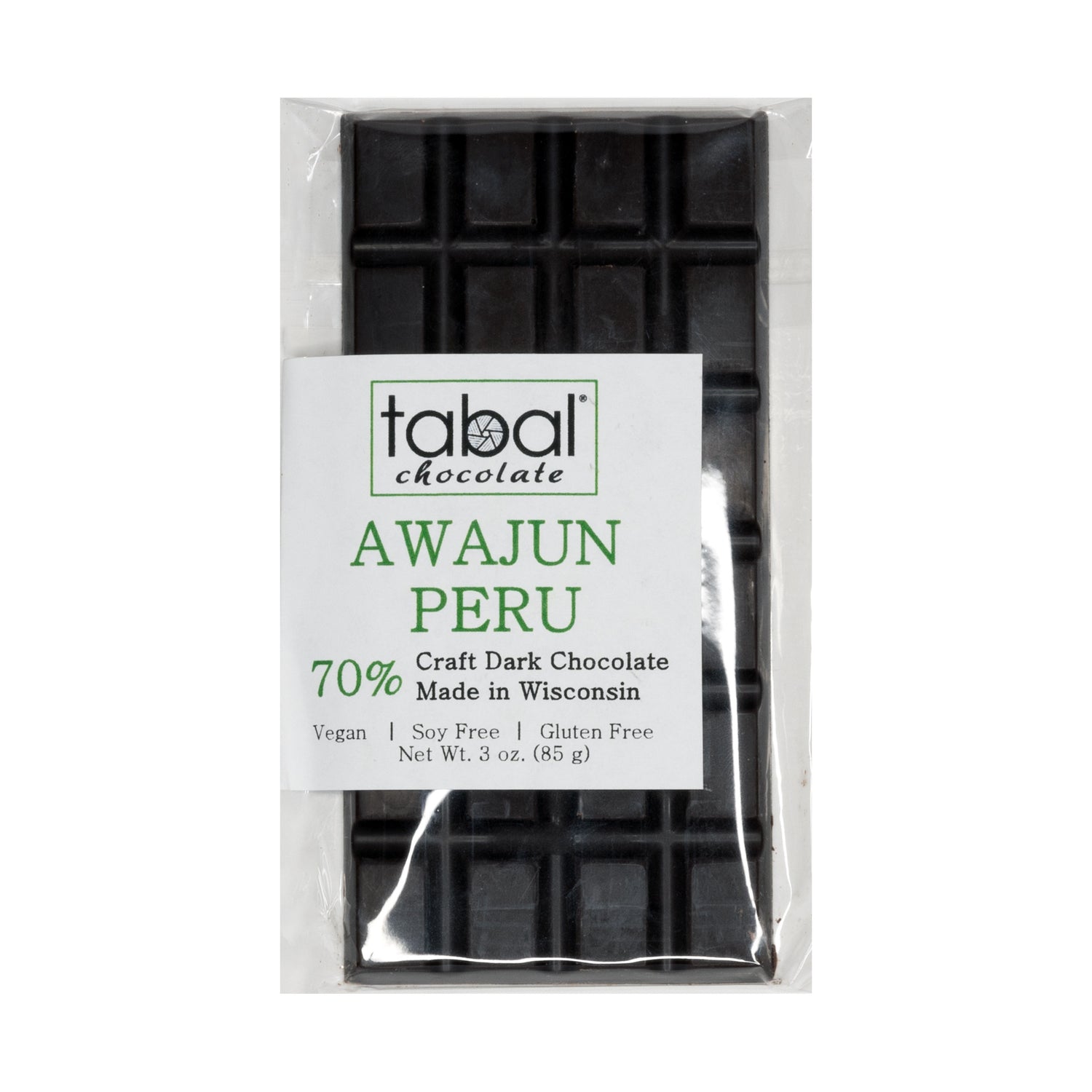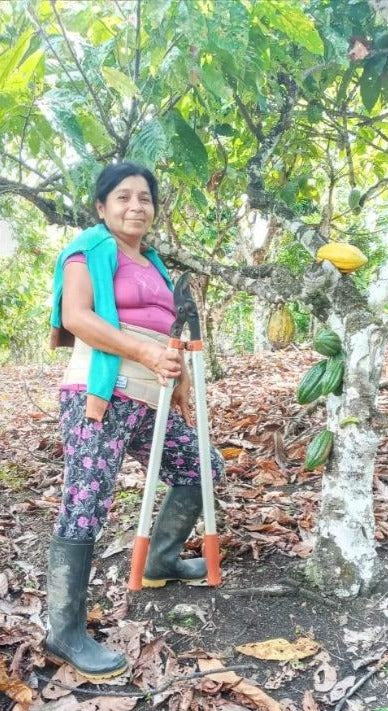AWAJUN, PERU 70%
No se pudo cargar la disponibilidad de recogida
Descripción
AWAJUN, PERU 70%
We chose this cacao to make into single origin chocolate because of it's amazing flavor and quality. Equally as important is the fact that we wanted to celebrate and support cacao farmers who are women and to promote gender equity.
Below are some of the details about this unique Awajun cacao that we wanted to share with all of you, so you can appreciate the time and commitment of these amazing farmers!
Origin: Awajun, Peru
Tasting notes: Fruity, floral
Ingredients: Single source organic cacao, organic cane sugar
Organically grown * Direct Trade * Gluten Free * Dairy Free * Soy Free * Vegan
Nutrition facts: Serving size: 1.5oz. Calories: 280. Fat: 19g (29%). Cholesterol: 0mg (0%). Carbs: 23g (8%). Fiber: 3g (14%). Sugar: 14g
*All our chocolate may contain traces of nuts, tree nuts, peanuts, dairy, flour, and soy.
AWAJUN:
- This cacao comes from inside the Amazon Jungle. It particularly comes from the “Amazonas” department of Peru, which is in the north of Peru.
- The cacao is made up of mostly native/criollo varieties.
- Typical flavour profiles are on the fruity/floral side (examples: red fruits, prunes)
- The fermentation is done in sweet wooden boxed (mostly “Tornillo” wood, which is a local wood variety. “Tornillo” means ‘screw’ in Spanish)
- Fermenting box orientation is mostly in an escalator system, if not in linear level rows.
- Fermenting is done for 6 days - with rotation of the beans done every day after the first 2 days
- The Awajún Cacao is harvested from farmers traditional to the area. These farmers are mainly from the Awajún tribes and the Huambisa tribes (Can also be written in the following ways: Huampisa, Wuampis, Wuampisa)
- The cacao bares the name of the tribe.
- Traditionally the men in the tribe are the providers: hunters and fishermen – they sell their catch and bring the $ to the family. Their role is to go hunt/fish. The women had two roles - take care of the farming/cooking and the kids (It was a very ‘macho’ society in this sense…but it’s now changing)
- Cacao was never “commercialized” in this area, but in the past few years this cacao variety was “discovered” by outside of the Amazonas… and has been growing in popularity.
- Different governmental projects are investing in programs and courses to increase the community’s knowledge on cacao and how to farm/ferment/dry it.
- The women in these communities are being empowered by the cacao at a very fast pace!
- It is them that know how to farm the cacao, ferment it and it is them that are now brining in more of the $ for their families. It is them that are teaching the men how to farm.
- The cooperative of these region is mainly run and managed by the women.
- The women are now also becoming the providers in their families.
- Through government funded projects they are being taught how to succeed in cacao farming.
- The women are seeing first hand what farming of good quality cacao is resulting in:
- More infrastructure: schools, hospitals, health aid centres, etc.
- Better quality education for their kids
- More money for their families and communities
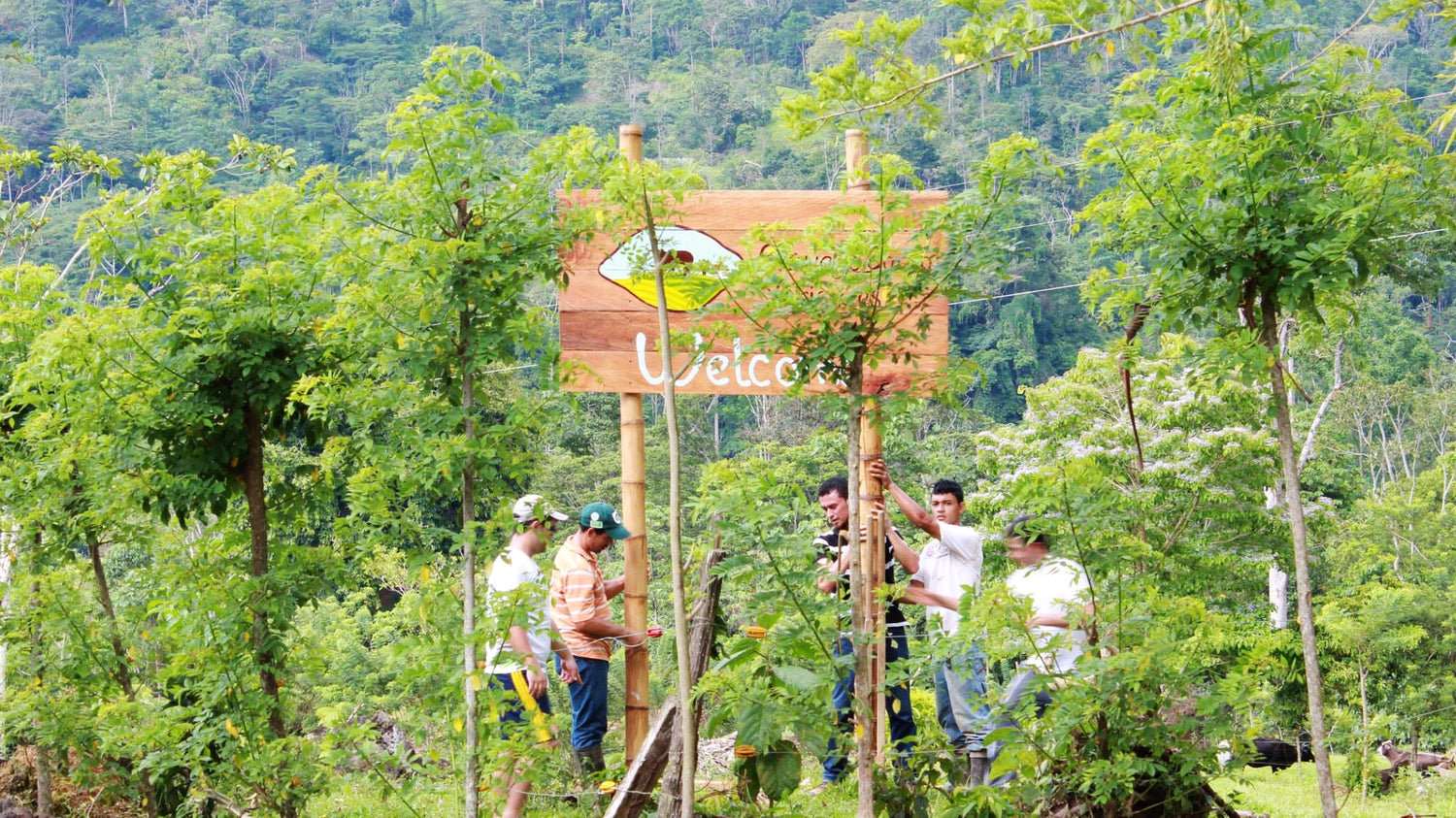
Ethically Sourced
Maintaining Relationships
We maintain close relationships with 165 farmers through technical training, in agronomic practices and organic certification. Learn more about how chocolate is made.
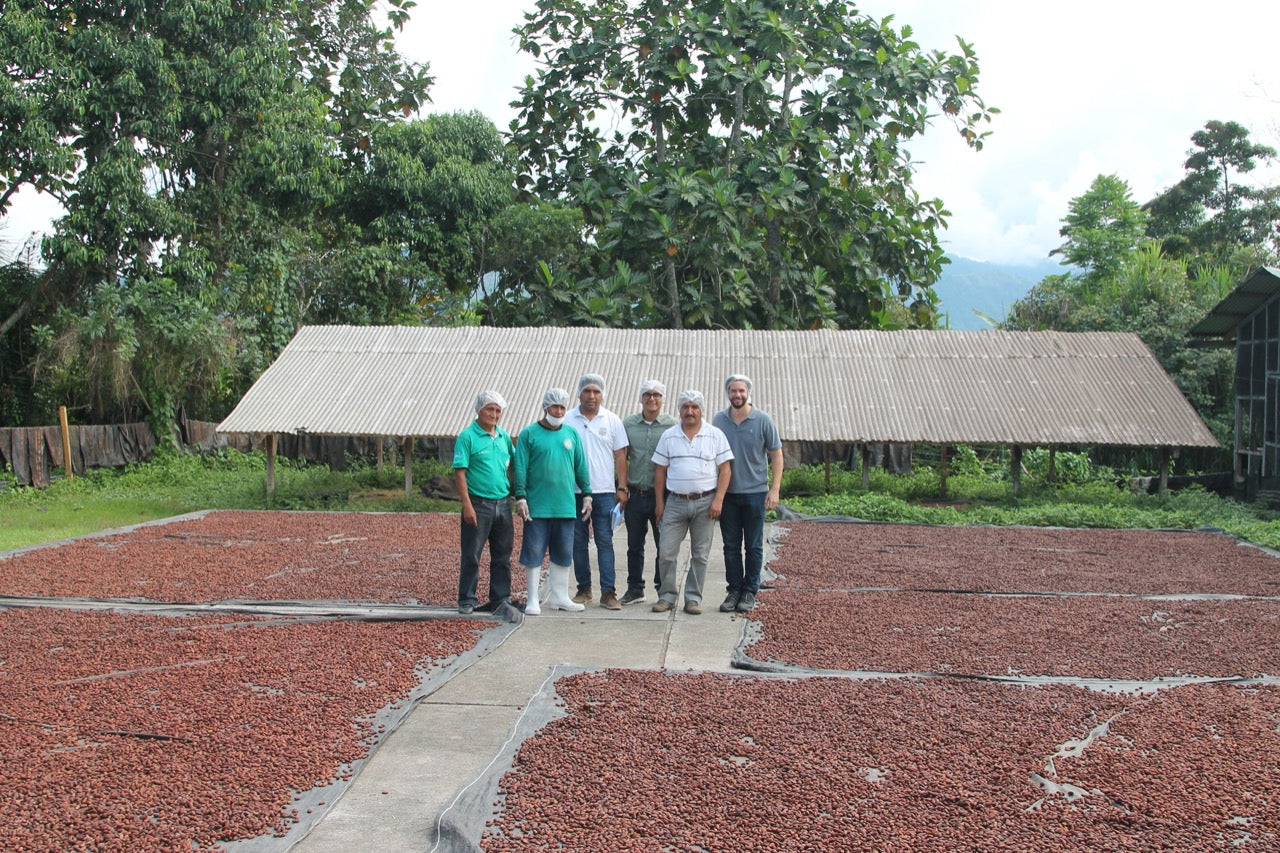
FAQ section
Show frequently asked questions with answers and pair with image.
Do you ship to my country?
Yes. We ship orders worldwide. See more information from other shipping related FAQ questions.
Do you make the chocolate by hand?
Yes. Once the beans arrive at Tabal Chocolates we sort, roast, crack and winnow, grid, conch or aerate, temper, pour into molds, then wrap each bar by hand.
Where do you get the cocoa beans?
We get the beans through our communities in the Dominican Republic, Costa Rica, Columbia, Nicaragua, and Peru.
Do you do wholesale?
Yes. We do.
